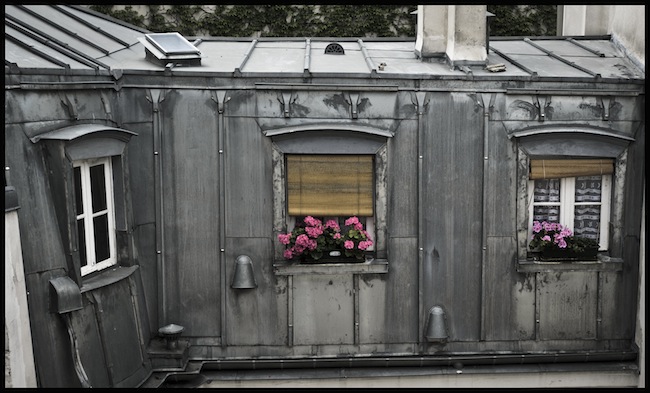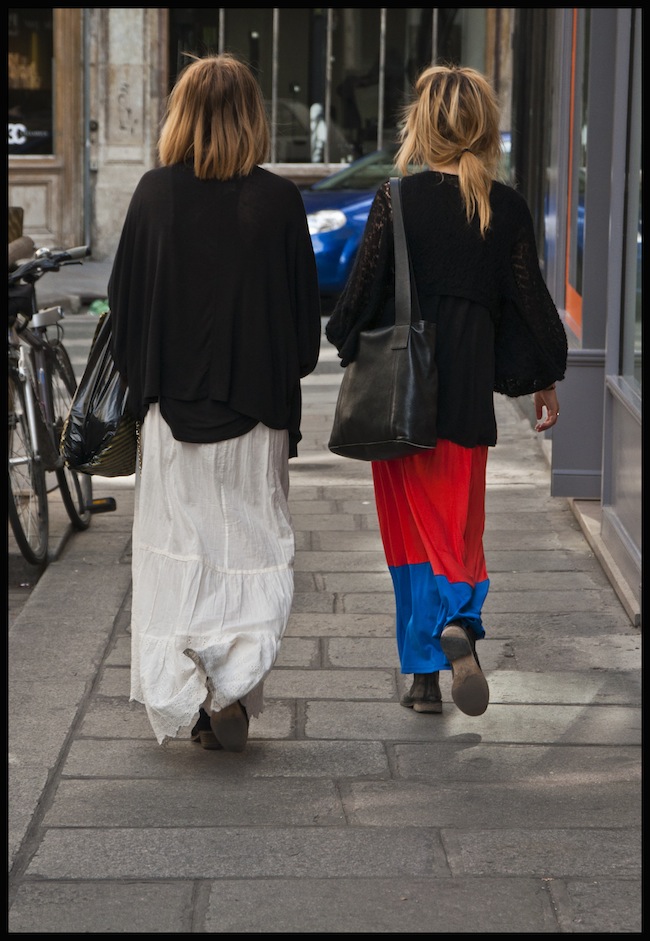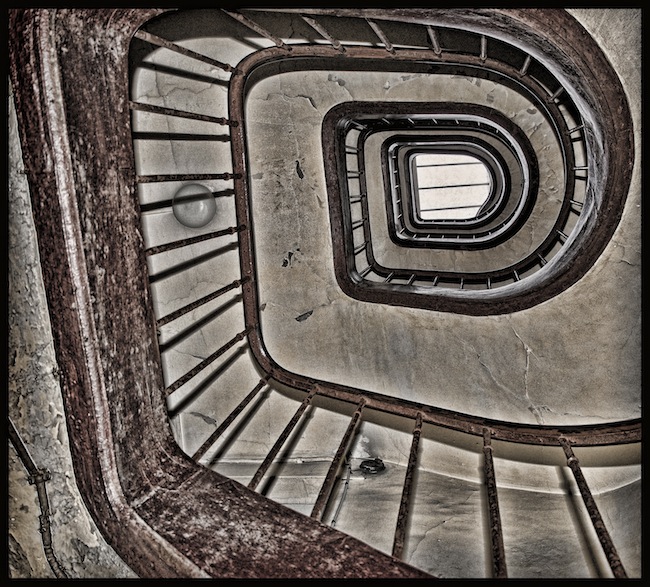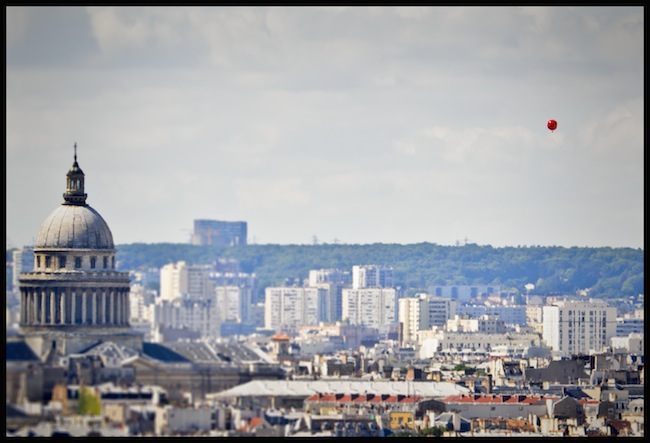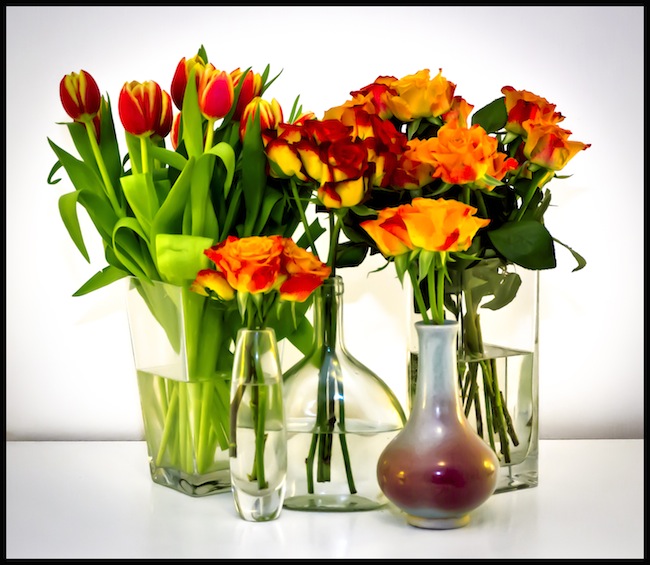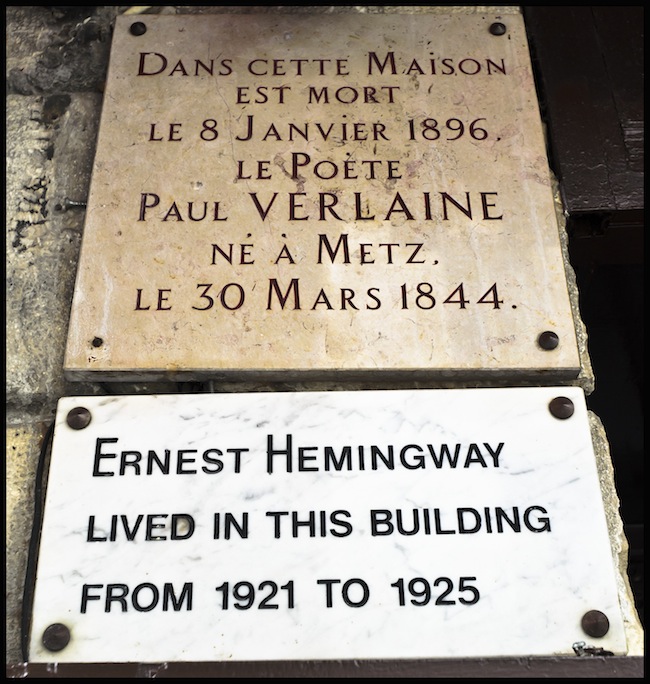Dinner: One Cricket, One Kir
 03.31.2012
03.31.2012 
I followed the thread of the labyrinth for years, until I knew its winding loops and pattern as if they were my own soul.
I still trace its pattern and colors daily, a record, a map of my days.
Out of the labyrinth now, I’m fascinated by the threads that link me to others, to kindred spirits, other worlds.
Kindred spirit: Susan. Met in Berkeley at a screening of my cousin Mark’s film about the ecology movement, “A Fierce Green Fire.” Instant love.
Kindred spirit: Edith. Met in Paris at Connie’s house when she told us stories of artists she’s known that kept us all spell-bound. Instant love.
Kindred spirit: Judithe, a friend of Susan’s and Edith’s and Connie’s, who also lives in Paris. Judithe invited me to a gathering of writers and bande dessinée (comic strip) artists who write for and illustrate a French magazine called Soldes. It was inspired by a countercultural magazine Actuel, that Judithe and her ex-husband created in the late ‘60s.
I am to meet her at her home. She comes to the door in goat leather jacket, serpent pants, with a Jeanne Moreau mouth.
Rez de chaussée (the ground floor), a large living-dining room that opens onto a deep garden, rare in Paris and enchanting. Persian rugs. Fine paintings on the walls. A photograph of an African king.
A chunky Welsh corgi on the floor.
A tricycle in the foyer.
Judithe is learning how to make an e-book. She’s a diver who photographs underwater worlds. She’s modest about her photography skills, but a friend in NYC insists that she must make an e-book with her photos of underwater creatures, and he will help with text and publication.
She shows me how she plugs in text and photos in the e-book program on her MacBook. It looks so easy!
Her black Smart car is parked on the curve of the boulevard. It’s impossibly small, like a toy car. But it carries us comfortably and smoothly through Paris to the Canal St. Martin. We cover deep-sea diving, American politics, whether Obama will be re-elected (yes, I think he will), French politics (the choice between Sarkozy and Hollande, and who should win), UNESCO, the counterculture, children, people we know and love in common, Berkeley, the Berkeley Barb, R. Crumb, who was friends with Judithe and her husband and did cartoons for Actuel.
We park just off the Quai de Valmy in a tiny space that no other car could maneuver into.
It’s not at all clear where this warehouse is. Judithe pops into the post office, and asks a group of Arab men. The entrance is around the corner, says one. She is gay and charming, and he is happy to help.
Canal St. Martin is lined with young picnickers and drinkers, a hip and happening part of town. The warehouse is marked by familiar graffiti—I’ve seen it before in a photo of Richard’s.

The high-ceilinged room is filled with artsy-looking youngsters in their 20s through 60s. (Artists and revolutionaries are closer to their childhood selves, and while not always the most mature of citizens, carry youthful spirits well into old age.) The first thing that strikes the eye is a giant cartoon on the wall.
“Richard would love this!” I exclaim.
“Call him and tell him to join us,” says Judithe. But he is at a photography event.

Judithe introduces me to a man about our age, an elegant French artist, who is one of the founders of Soldes. I can’t make out his words above the rock music, and ask him to speak more slowly, thinking I might read his lips. But he and Judithe think I mean I don’t understand French, and switch to English. But I do! Chat, chat.
We make our way through the crowd in front of the bar. Judithe orders a serious drink. I settle for Kir.

Back into the main room. An array of insects is artfully arranged in mandala form on plates. The hors d'oeuvres.
I am mesmerized. Scorpions, bees, grasshoppers, crickets and worms. We’re supposed to eat them. They’re certainly beautiful, but no one is rushing up for a sample. I take a few photos to show Richard.
Two young men with microphones are seated on the lip of a stage. On a big screen behind them are photos and diagrams of places in Africa and Asia where insects are a primary source of protein in the diets of humans.
One of the men discourses in that serious French fashion, as if this is a lecture at the Sorbonne. Now he is deconstructing cultural attitudes towards eating insects.

Insects were once eaten in Europe, the lecturer tells us. The only thing that prevents us from eating them today is disgust. (Disgust! That little piffle.) I was raised in a state where scorpions abound, and avoiding them always seemed like a good idea.
Judithe and I take seats on folding chairs near the projector. We glance over at the hors d’oeuvres table. No one has touched the snacks. In spite of the cogent analysis, cultural disgust is intact.
“Why are there no spiders?” asks a young woman.
“Spiders aren’t insects,” the speaker says.
Oh good. No black widows. No rattlesnakes.
“But aren’t some insects poisonous?” someone asks.
“Insects are just like mushrooms. You have to know which ones are edible, which are toxic,” the lecturer says.

Judithe asks another question. But this is one too many interruptions for the lecturer. They will take questions at the end.
“This is so French,” Judithe mumbles,“the serious sermon.”
We meander around. I strike up a conversation with a man who is drawing bright beautiful cartoon figures in the front of the latest edition of Soldes. He introduces me to his wife, Ariane.
She is Swiss. He is French. They lived in NYC for a while and now are back in Paris. I ask her if she knows the myth about her namesake, Ariadne.
No, she doesn’t. What is it?
I tell the story of the Cretan princess and the labyrinth and the Minotaur.
“Oh!” she says, “The goddess with the thread? That’s funny. My husband’s name is Phil and you know the French word for thread is fil. And he’s a Taurus, a bull.”
“So is mine!” I say. “And our myth is Ariadne and the Minotaur. In the later part of the story, Ariadne marries Dionysus. One of the shapes he takes is a bull.”
We talk about the Native American custom of going on a vision quest, which is a variation on the descent into the labyrinth.
I join Judithe outside on the bank of the Canal St. Martin. All around us people stand talking, drinking, smoking, cell phoning.
Back inside Judithe introduces me to a cartoonist who reminds me just a bit of Robert Crumb. A young Asian man extends a tray of insects to me.

“Why thank you. I believe I’ll try this cricket on his little wheat-colored bed,” I say. “Oh crispy! Delicious!”
Judithe and I are ready to go at the same moment. I buy a Soldes and ask Phil (Fil) to sign it to Richard and me. It’s as beautiful as an art book, and costs 17 euros.
We return in Judithe’s Smart car, and talk of Amin Maalouf’s book, The Crusades through Arab Eyes, the Lebanese, my cousin Mark’s “Fierce Green Fire,” Vassar, Sarah Lawrence, Cannes, diving in the Mediterranean sea, sky diving, a friend who killed herself in spite of great brilliance and beauty, French lessons.
A pleasurable evening of many threads. Dinner: one cricket, one kir. And a new friend, with many links between us.

 Ariadne,
Ariadne,  Dionysus,
Dionysus,  Minotaur,
Minotaur,  art,
art,  food,
food,  friendship,
friendship,  insects in
insects in  Paris Life
Paris Life 


































